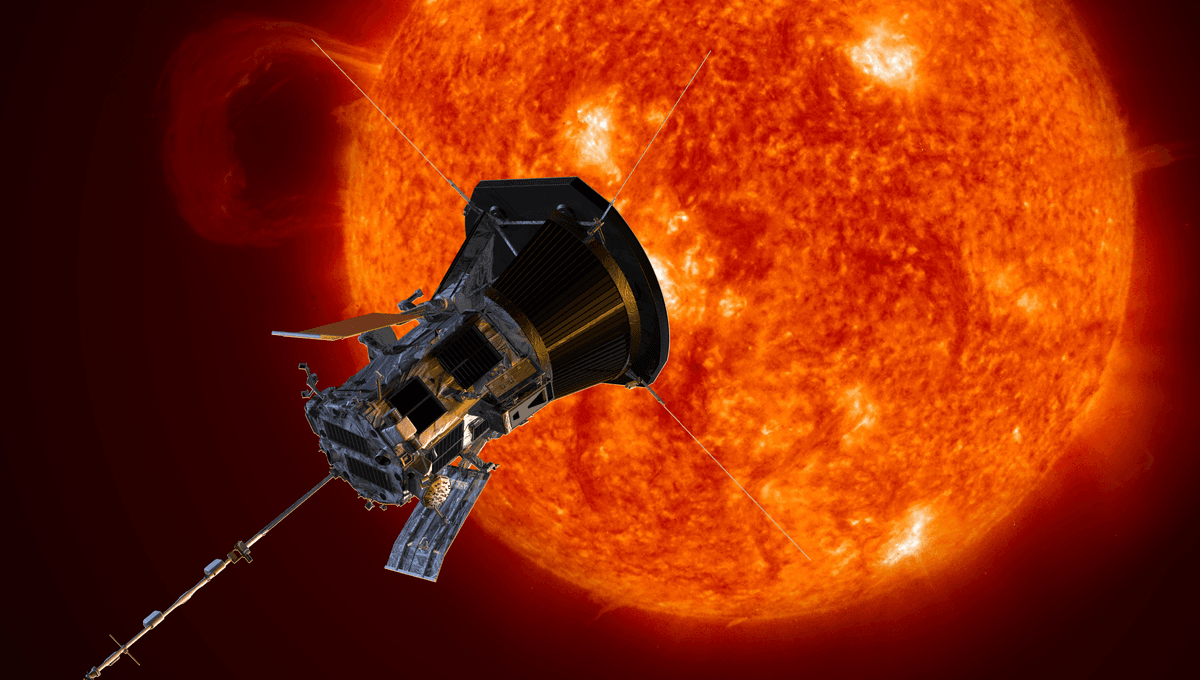
NASA has scheduled an early Christmas present for solar researchers on Tuesday, December 24, when the Parker Solar Probe will pass 6.1 million kilometers (3.8 million miles) from the Sun – closer than it or any other spacecraft has ever gone before. Assuming it survives the experience in a condition to keep sending back data, the Probe will reach similar distances in March and June 2025, but there’s nothing quite like a first passage.
Physicists have in the past calculated that Father Christmas would need to travel at around 10 million kilometers an hour (6,000,000 miles per hour) to visit and deliver presents to every child. At this fraction of the speed of light, Dr Katy Sheen of the University of Exeter noted in 2016, relativistic effects would take place that could explain many of the more curious aspects of the tale.
NASA lags somewhat behind. The Parker Solar Probe has set one record after another for the fastest human-made object, at least relative to such conventional reference points as the Earth and the Sun. Its current record, set last year, is 635,266 kilometers per hour (394,736 mph) a sixteenth of the speed flying reindeer can reportedly provide.
The probe travels on an elongated orbit, voyaging out to near the orbit of Venus, between passes more than ten times closer to the Sun. Each time Venus is there to meet it on the outer part of its journey, the Probe obtains a gravitational boost, increasing its velocity and allowing passage even closer to the Sun.
The latest – and last – such encounter with Venus occurred on November 6, and now Parker has reaped the benefit. Tomorrow it will get more than a million kilometers closer to the Sun than ever before. By Kepler’s laws, closer passage requires greater speed, and Parker will achieve around 692,017.9 kilometers per hour (430,000 miles per hour) tomorrow. That’s roughly 0.06 percent of the speed of light – not fast enough for relativistic effects to be measurable without very sensitive instruments.
Already, the mission has passed through the Sun’s atmosphere, as well as a coronal mass ejection. Inevitably, this closer passage will expose the mission to unprecedented temperatures and high-energy particles. The probe was designed to be able to survive these conditions thanks to its carbon-composite shield, but there must be limits. No more encounters with Venus are scheduled, so all further orbital adjustments must be made with the probe’s dwindling supplies of propellant.
The closest approach will occur at 11:53:48 UTC, but scientists keen to learn what Parker has detected will have to wait to unwrap their present. Transmissions from the probe have been blocked by its proximity to the Sun since Saturday, and will not resume until Friday.
“This is one example of NASA’s bold missions, doing something that no one else has ever done before to answer longstanding questions about our universe,” said NASA’s Dr Arik Posner in a statement. “We can’t wait to receive that first status update from the spacecraft and start receiving the science data in the coming weeks.”
“No human-made object has ever passed this close to a star, so Parker will truly be returning data from uncharted territory,” added Nick Pinkine of the Johns Hopkins Applied Physics Laboratory.
Source Link: On Christmas Eve, Parker Solar Probe Will Make Humanity’s Closest Solar Pass